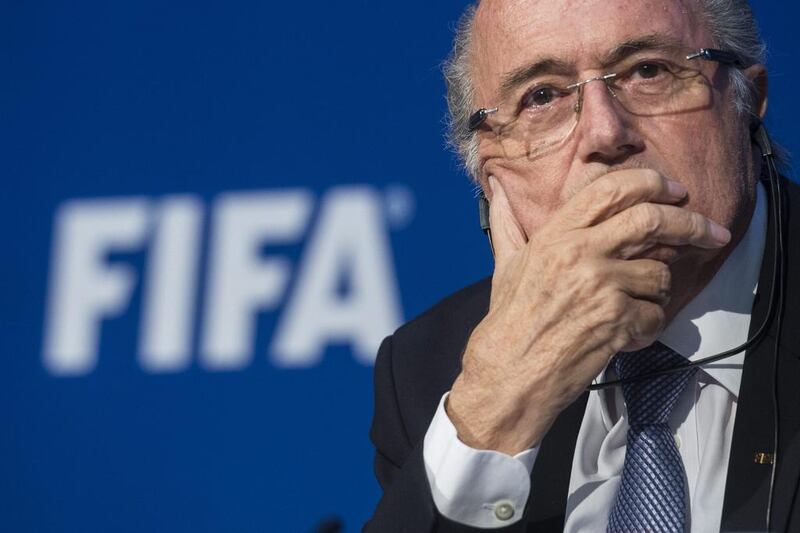You have never truly been verbally assaulted until a Glaswegian football hooligan has racially abused you. I had this (dis)pleasure in the 1980s while on a school trip to watch Scotland vs Holland. As a torrent of racial abuse, peppered with heavy Glaswegian expletives, poured down on me, the trip leader – a kindly schoolteacher – advised me to keep my head down and avoid doing anything that might exacerbate the situation. In hindsight, this advice was probably wiser than it was cowardly.
Sepp Blatter, five-time Fifa president, once suggested that there is no racism in football. Those closer to the action, most notably David Beckham, but many others too, were outraged and incredulous at Mr Blatter's statement. Many players had experienced or witnessed racial abuse weekly. All of them could recall the infamous FA Cup incident, when a racist section of the crowd started taunting Liverpool striker John Barnes by throwing bananas onto the pitch. Mr Barnes, to his eternal credit, coolly back-heeled a piece of fruit into touch and then went on to create the goal that took Liverpool to victory.
Interestingly, the Sepp Blatter who didn't see racism as a problem in football has more recently described criticism of the decision to award the 2022 World Cup to Qatar as racist. Initially, I didn't take Mr Blatter's comment too seriously, but then I heard a guest on a BBC radio show describing Qataris as being “bent as an Arab dagger”. The host of the show didn’t challenge this offensive overgeneralisation. Such a statement, while perhaps not racist, certainly smacks of negative offensive stereotyping.
The problem with allegations of racism is that we can’t always agree on a definition. Or even whether “race” is a meaningful concept. It makes more sense to explore these issues using broader terms, such as in-group favouritism and out-group hostility. Most of us don’t like to think of ourselves as racially prejudiced, but we might be more open to the idea that we often hold fairly subtle (or not so subtle) negative attitudes towards certain out-groups. It’s a classic case of: Us, beautiful; Them, not so much.
Many of us routinely make preconceived judgments about people on the basis of their out-group membership, be it nationality, gender or age. For instance, I recently attended an event with a colleague, an eminent professor who happens to hail from South-east Asia. While we were queuing for food, another guest at the event came over and abruptly ordered my colleague to bring more water to his table. He’d assumed, much to his later embarrassment, that the professor was a waiter.
This is a fairly innocuous example, but let’s change the situation. What if my colleague had been a young black man in south central Los Angeles and the thirsty guest was a police officer called upon to make a snap decision involving the use of lethal force?
Psychologists have tested this idea in a now famous experiment known as the “Shoot, don’t shoot study”. This study typically asks participants to sit at a computer screen and shoot any gun-wielding bad guys who randomly pop-up throughout the task. Controversially, the study generally finds that participants are relatively quicker about shooting armed black men compared to armed white men.
But most of the people who show a bias on the task will strongly deny being prejudiced. This is the heart of the issue; our out-group bias is often implicit and automatic. It flies way below our conscious radar and is rooted in assumptions that might have gone unquestioned for decades.
One way to reduce such bias is to become aware of, and less reliant on, stereotypes. These overgeneralised beliefs about out-groups fuel our biases. Sometimes, when I’m in conversation, the person I’m talking to will inquisitively interrupt me, and ask something like: “Where was he from? Was he local/Indian/expat?” This additional information is totally irrelevant to the story; what the person is really seeking is confirmation of an existing out-group stereotype. Don’t give it; don’t fuel the bias.
Dr Justin Thomas is an associate professor of psychology at Zayed University
On Twitter: @DrJustinThomas





